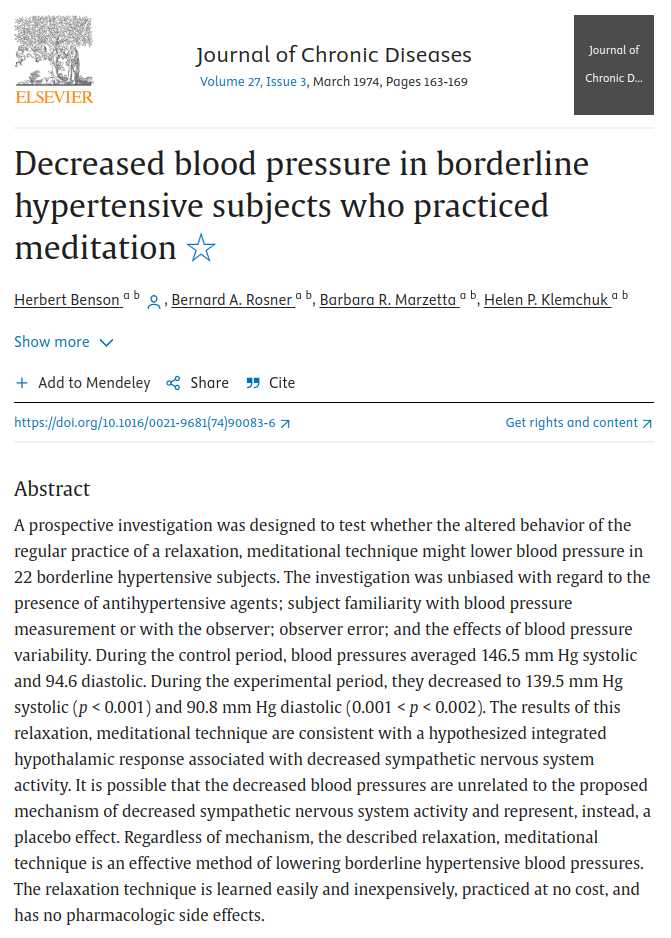Publication
Journal of Chronic Diseases
27(3):163-9
Abstract
A prospective investigation was designed to test whether the altered behavior of the regular practice of a relaxation, meditational technique might lower blood pressure in 22 borderline hypertensive subjects. The investigation was unbiased with regard to the presence of antihypertensive agents; subject familiarity with blood pressure measurement or with the observer; observer error; and the effects of blood pressure variability. During the control period, blood pressures averaged 146.5 mm Hg systolic and 94.6 diastolic. During the experimental period, they decreased to 139.5 mm Hg systolic (p < 0.001) and 90.8 mm Hg diastolic (0.001 < p < 0.002). The results of this relaxation, meditational technique are consistent with a hypothesized integrated hypothalamic response associated with decreased sympathetic nervous system activity. It is possible that the decreased blood pressures are unrelated to the proposed mechanism of decreased sympathetic nervous system activity and represent, instead, a placebo effect. Regardless of mechanism, the described relaxation, meditational technique is an effective method of lowering borderline hypertensive blood pressures. The relaxation technique is learned easily and inexpensively, practiced at no cost, and has no pharmacologic side effects.
Web and Email Links
Related Listings
Journal
Behavior Research and Therapy
In this study, Herbert Benson's (1975) Relaxation Response Meditation program was tested as a possible treatment for Irritable Bowel Syndrome (IBS). Participants were 16 adults who were matched into pairs based on presence of Axis I disorder, primary IBS symptoms and demographic features and randomized to either a six week meditation condition or a six week wait list symptom monitoring condition. Thirteen participants completed treatment and follow-up. All subjects assigned to the Wai […]
Journal
Radiology
Immediately before they underwent femoral angiography, 45 patients were given one of three types of audiotapes: a relaxation response tape recorded for this study, a tape of contemporary instrumental music, or a blank tape. All patients were instructed to listen to their audiotape during the entire angiographic procedure. Each audiotape was played through earphones. Radiologists were not told the group assignment or tape contents. The patients given the audiotape with instructions to […]
Journal
Scientific American
A very readable introduction to the scientific findings in neurology about primarily Buddhist forms of meditation.

